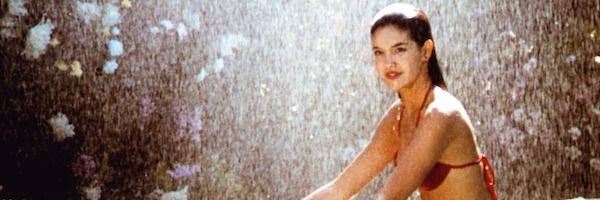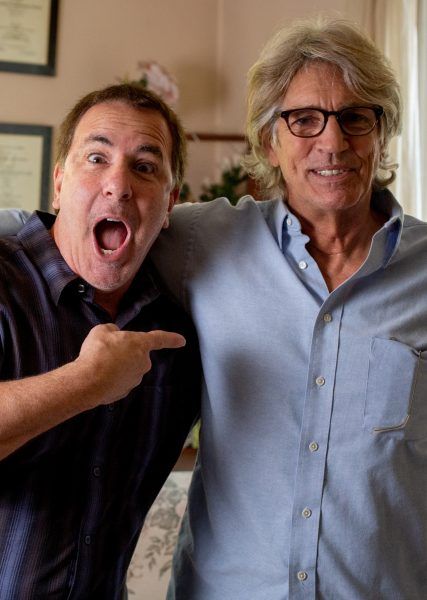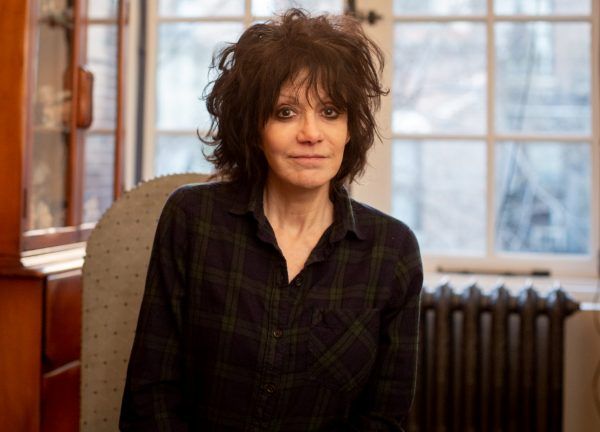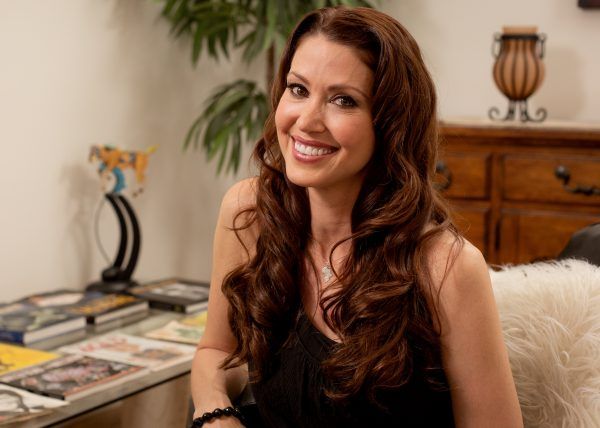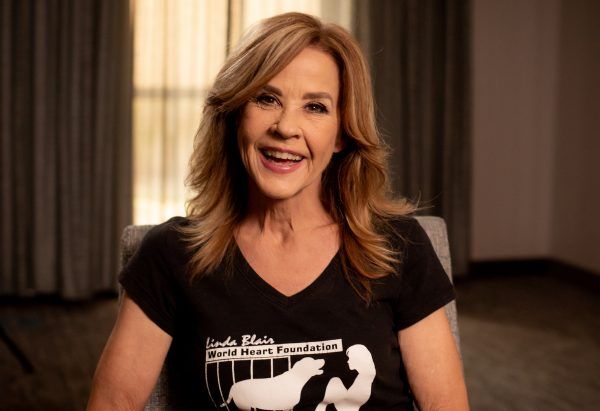From director Danny Wolf, the documentary Skin: A History of Nudity in the Movies is a deep dive that extends from the silent movie era through present day. While examining the changes in morality that shaped a rich cinematic history and the push for gender equality in feature films today, there’s also a thorough discussion on the subject that gets personal with stories and anecdotes from various actors and directors about their own experiences with nudity in movies.
During this 1-on-1 phone interview with Collider, filmmaker Danny Wolf talked about his desire to tell the definitive history of nudity in the movies, what got him interested in doing this specific project, his love of conducting interviews, making exactly the film that he hoped to make, the challenging editing process, the personal stories that he included, and that he’s already looking toward his next film subjects.
Collider: I had no idea how comprehensive this documentary was going to be.
DANNY WOLF: It’s pretty comprehensive. That’s the way we wanted it. We didn’t want something just exploitative with a lot of breasts. We wanted a real definitive history of nudity in the movies, and I think we accomplished it.
It seems very daunting to do something like that, especially when it is so comprehensive. When you started this project, no one had ever produced a documentary on the history of nudity in cinema, so was that something that surprised you?
WOLF: Everybody’s making documentaries these days, so when Jim McBride, who’s Mr. Skin, our executive producer, and Paul Fishbein said, “What do you think about a documentary about nudity in the movies?,” the first thing I said is, “Well, how many have there been?” And then I went right to, “Well, if we’re gonna do one, let’s make a definitive history, from the beginning to now.” And they were like, “No, no one’s done one, at all.” That’s when you go, “We better jump on it before someone else does,” because everybody’s doing a documentary about everything right now. We’ve found a few more that we’re gonna do next. I won’t reveal that yet, but there are a couple of other wide topics that you wouldn’t believe no one’s done yet, and that I was shocked no one had done before.
Was it something that you had ever thought about doing before they suggested it to you?
WOLF: We were working, the previous few years, on a three volume documentary that’s out now, called Time Warp: The Greatest Cult Films of All-Time. That was a nine-hour documentary that’s now a six-hour documentary, so I was working on that for a couple years, just running around, doing interviews all over the country, and it overlapped. When we were finishing that, we said, “What are we gonna do next?” And that’s when the idea for this came up and we were like, “Well, let’s get on that right away.” We just went from one right to the other.
After doing one such comprehensive documentary, did you ever think about taking a break?
WOLF: Believe it or not, no. I love interviewing actors and actresses, directors, authors, and critics. They’re the coolest people in the world. So I couldn’t wait to line up interviews. I was like, “Let’s get Mariel Hemingway. I love Star 80. How about Ken Davitian from Borat? No one would ever expect that he’s going to pop up in a documentary about nudity.” If you start thinking, “Who would be really cool to interview?,” and you start putting the cards on the wall, and then you decide the seminal films that you can’t leave out, it only made sense to do it chronologically. To tell the story of nudity from the very beginning to where we are today was easy and a cool way of doing it. Every decade changed. Politics changed and culture changed, so nudity changed with the times, so it was easy to lay it out that way.
Would you say that the film that we see now is the film that you set out to make, or did things change along the way, especially as you spoke to people?
WOLF: The film actually came out exactly how we were hoping it would. We wanted to mention a lot of firsts, like the first female nude scene and the first male frontal scene. We wanted to get all of the firsts in, and tell the story that people wouldn’t know, about the Hays code and the production code and how you couldn’t have nudity because of the Catholic Legion of Decency. And then, we wanted to tell the story about European nudity versus American nudity, and why we’re so far behind. And then, it was about picking the movies. You’ve gotta talk about Midnight Cowboy and Caligula and Fast Times at Ridgemont High. And then, you start setting your interviews with your authors and experts. When you look at your wall of movies and you’ve got Fast Times at Ridgemont High, you think about who you want to interview. Phoebe Cates is who you want to interview, but she doesn’t really do interviews, so we got Amy Heckerling. Who better than the director that directed this famous scene? It’s like a jigsaw puzzle. You just fill in the pieces. But to answer your question, it came out exactly how we wanted it to come out. It’s educational, it’s something where people would learn, and it’s something that’s fun. It’s a documentary where people pop up that you would never expect to be there, which I think is cool. I love documentaries where you never know who’s gonna pop up next on the screen. I think we accomplished everything, and it’s entertaining. It’s two hours, and I think it moves fast. It came out exactly how we hoped it would, and it’s not exploitative. We didn’t want anyone to call it a boob fest, or think that we were just exploiting these scenes. That was the first thing that we said we couldn’t do because then no one would take it seriously. They’ll take it seriously, if it’s a definitive history of, and that’s what it is.
What was the editing process like on this? Do you have a good idea of what you want to do, as you do it, or do you have to deal with overwhelming hours of footage when you’re done?
WOLF: What I do is that I basically go through transcripts of every interview, because we don’t have a narrator, and I highlight everything that’s important or interesting. And then I tell the editor, everything that I highlighted, just string it together. And then, you start putting in the footage relative to what they’re saying. Our first cut was five and a half hours. Then, the hard part begins, when you have everything you like and it’s your best stuff, and you have to start whittling it away because you don’t want a two or three parter, and you don’t want a doc that’s five and a half hours. You want something around two hours. The hard part is then taking out the stuff that you like. It’s painful because it’s like your baby. There were certain stories that I hated to take out, but we had to make it shorter. And then, it was four hours, and we had to take another hour out. And then, you love that four hours and everything is great, but you have to take another hour out. To me, it’s very painful ‘cause you have so many cool stories that you want people to hear, but you just can’t use them all. With the cult films documentary, it’s three volumes. It’s almost six and a half hours because there were so many great interviews, with 115 people. We couldn’t make it two hours. It had to stay as a three volume. The worst process of doing a documentary is cutting out stuff that you think people will like, just ‘cause it’s too long. I would have loved to have left the story in with Mariel Hemingway and Eric Roberts shooting the murder scene in Star 80, in the actual room where the murder took place, but that took us off our narrative of nudity in movies, even though it’s an unbelievable story and the way they tell it is incredible. We just couldn’t use it.
It’s so interesting to listen to the different actors and actresses talking about doing nudity because you can hear how it affected them, why they embraced it, or whether they felt it was something they had to do. Was there anyone that you felt had the most interesting insight? Did anyone particularly surprise you when you were talking to them?
WOLF: That’s a good question. Every single person I interviewed, I would ask, “How did the nudity affect your career, and how did it affect your personal life?” That’s when we got the really interesting answers. Erica Gavin, who’s in the documentary, starred in the movie Vixen, and she said, “Well, it didn’t really affect my professional career, but it affected me personally because when I went to the premiere, the first time I saw myself that big on a giant screen, I started picking my body apart, and I didn’t like the way I looked.” She became deathly anorexic just from how she saw herself on the big screen, and almost died. That’s an extremely personal story, but really interesting. That’s what nudity did to her. It almost killed her. And then, there’s an actress, like Cerina Vincent, who starred in Not Another Teen Movie and Cabin Fever. She was a Power Ranger, and she got fan letters from all over the world from kids ‘cause she was a child star. And then, she did this teen sex comedy where she’s nude in every scene, and it’s all in fun. It was a comedy. But the backlash from her fans, from her other work, were picking her body apart and telling her how she should have never done this, and that they used to look up to her, but now they don’t, and she said it destroyed her, reading comments about doing nudity in a comedy. She wasn’t expecting that. And then, there was Diane Franklin, who starred in The Last American Virgin. It was her first film, and she did nudity, but she was fine with it because it was germane to the story and to her character. But because she did nudity in her first movie, then she was hired to do nudity in her second movie, Amityville 2. And then she started only getting roles that required nudity because people thought, “Hey, she’s okay with taking her top off, so let’s just get her.” She said that really affected her career. She didn’t want to be known as the actress that just does nudity, so she basically had to tell her agent, “No more. I won’t take any more roles where my top comes off.” She was then turning down tons of work. And then, there’s someone like Shannon Elizabeth, who said, “If I didn’t do nudity in American Pie, I might not have had a career.” The nudity got her a three-picture deal and actually helped her career. So, everybody’s story is really interesting, how it affected not only just their career, but their personal life. Those are the cool stories that make this good.
When you’re digging so deeply into a subject and you’re hearing this huge array of stories from people, does it change how you view nudity in movies now?
WOLF: Well, yeah. You hear the stories of how actresses and some actors were exploited back in the day, and were coerced to do more nudity than was in the script and if they didn’t, they were holding up production or ruining the movie or were afraid they would be blacklisted and never work again. So you hear the stories about how nudity hurt some careers and you feel bad for actresses in the ‘70s and ‘80s that were in low-budget horror films. These actresses that would get killed off early usually were topless, and some of them said, “The director said, ‘I’ll give you 500 extra dollars, on top of your pay, if you take your shirt off.’” And they didn’t want to be difficult and never get hired again. I learned that, back in the ‘70s and ‘80s, it was not easy for an actress. They were exploited and a lot of it was gratuitous, or they signed up to do a movie where, once they started filming, wasn’t necessarily the movie they thought they were making, like Kristine DeBell talks about with Alice in Wonderland, or Linda Blair talks about with Chained Heat, where nudity was thrown in. They didn’t think they were gonna be doing nudity, and then they were told, “Well, if you don’t do it, everyone’s out of work, and you’re never gonna work again.” They would do it, and that was unfair. The times have changed. With the #MeToo movement, there’s so much more female empowerment. Now, an actress can say no, and there are no repercussions. Unfortunately, it’s only been that way in recent years. Now, you have an intimacy coordinator on the set, which is new. That’s important for actors and actresses because someone is there to make sure that, if there’s a scene with nudity or sex, that it’s done tastefully and artistically, and in good taste, and accurately, and not something gratuitous that wasn’t in the script. These intimacy coordinators are now popping up on sets as an insurance policy for studios, so that there’s no, "He said, she said." They’re there to make sure everything’s above board, and I think that’s a good thing.
What was it that got you interested in documentary filmmaking and doing this kind of documentary where you dig so deep into your subject?
WOLF: I was doing reality TV for years, but always doing interviews on the shows that I was working on. Gigolos, for Showtime, was a show I did. In between reality shows, I was asked, “Would you like to direct a movie on cult films?” I was driving to the New Beverly Cinema, Quentin Tarantino’s theater in Los Angeles, to see a triple snakesploitation triple feature and said, “This is perfect for me. I love cult movies. And wow, I’ll get to interview the cast of my favorite films?” I jumped right on board, immediately. And then, that led to this one, and now there’s a few more that we’re planning on doing.
How do you go about picking a subject? Does it have to be a subject that you’re really interested in, since it is something that you’ll be digging so deeply into, or do you like to find things that maybe you don’t know as much about?
WOLF: For the cult documentary, I was so into the subject matter that it was a dream job. I couldn’t believe that I was getting paid to interview the cast of Napoleon Dynamite and Valley Girl. Interviewing 115 stars was a dream. I didn’t look at it as work. With this, I had to learn more about it. I didn’t know about the Hays code and the early 1920s movies, so I learned. All I knew was that I was gonna get to interview a bunch of great actors and actresses again, and that’s all I wanted to do and all I like doing. So, if it’s a documentary where I’m traveling around, interviewing people from movies that I love, I’ll do it, every time.
Skin: A History of Nudity in the Movies is available on-demand.

